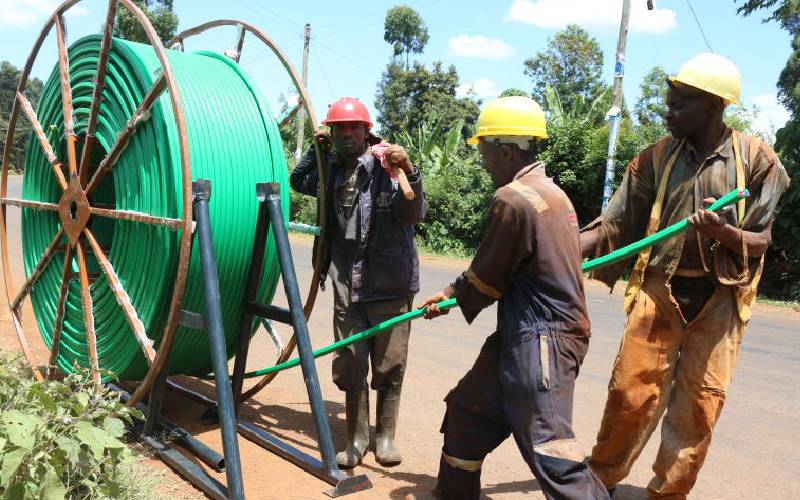×
The Standard e-Paper
Stay Informed, Even Offline

Workers from fiber optic providers on work at Othaya in Nyeri on October 4, 2017. [Kibata Kihu, Standard]
Ten years ago, the Kenyan Coast experienced a flurry of activities that were of interest to many, especially those in the technology sector.